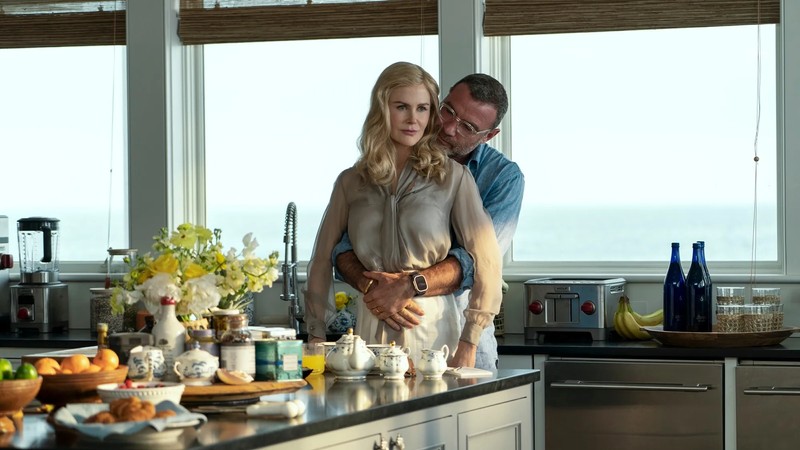My Favorite Portrayals of Sex Work in Media
I don’t watch many movies or TV shows that have portrayals of sex work. Most characterizations of this profession in the media contain stereotypes ranging from offensive at worst to fetishizing or sensationalizing at best.
The most common portrayals include a hooker or stripper dying, typically in some brutal and disturbing way. Or, the sex worker is portrayed as a hapless drug addict or victim of abuse, perhaps being controlled by a cold-blooded pimp.
These stereotypes are based on real things that happen, but the stories of sex workers, even those who do get murdered or deal with addiction and abuse are so much more nuanced and human than much of what is often portrayed in media.
Telling these stories is important, but it can be harmful when these stories are taken from sex workers and told from other perspectives without input from people with lived experience in sex work.
Before I talk about my favorite portrayals of sex work in media, I need to mention a few popular portrayals that are slightly more positive than the worst of them but still have problematic stereotypes.
Inara and The Whorearchy

In the classic science fiction series Firefly, Inara Serra, a “Companion” played by Morena Baccarin, distances herself from the label of “prostitute.” She takes pride in being cultured and refined. Companions in the show also distinguish themselves from prostitutes by choosing their own clients. That isn’t a problem by itself, but it mirrors the real-world “whorearchy,” in which certain types of sex work are deemed more respectable than others, perpetuating divisions within sex work communities. The whorearchy also determines what types of sex work society sees as more “acceptable” than others.
The “Captain Save-a-Ho” Trope

Pretty Woman exemplifies this trope, in which Vivian (Julia Roberts), a sex worker, is “rescued” by businessman Edward (Richard Gere). The story portrays Edward as the catalyst for Vivian’s transformation, Pygmalion style, from a bold, brassy sex worker into a refined, “acceptable” woman who conforms to his world. Her physical transformation, from skin-tight mini-dresses and a blonde wig to high-end conservative clothing, symbolizes her changing herself to fit into his mold.
Throughout the film, Edward treats Vivian paternalistically, scolding her for fidgeting, as if she is a toddler, and coaching her to be more appealing to him. This reinforces the idea that sex workers lack the knowledge or capability to improve their lives without a man recognizing their worth and offering guidance for how to be more appealing to society at large. It also perpetuates the damaging narrative that sex work is inherently degrading or undesirable, suggesting Vivian’s value only emerges once she leaves it behind.
While it’s true that many sex workers use the work to pay for education, start businesses, or achieve other goals, Pretty Woman undermines this agency. It suggests that her departure from sex work is only valid when funded by Edward and directed toward a socially acceptable purpose—like becoming his girlfriend—rather than making money for her own profession or pleasure.
It also shows the painful-to-watch journey of Edward who goes from hardly seeing Vivian as human, to falling in love with her after he’s made her acceptable for him and his world. It’s actually quite relatable – a lot of people don’t fully see sex workers as people whether they’ll admit to it or not. But, it being relatable doesn’t make it easier to watch that scenario play out.
This trope perpetuates the harmful stereotype that sex workers are helpless victims waiting to be saved. It ignores the reality that many sex workers are fully capable of directing their own lives and making choices for themselves, whether that involves leaving the industry or staying in it on their own terms.
Whew, OK. Pretty Woman rant over.
My Favorite Portrayals of Sex Work in Media
These critiques about movies and TV shows don’t mean I don’t enjoy watching them, it just means they are not on my list of favorite portrayals of sex work!
I would also be remiss if I didn’t mention that it is even more challenging to find more positive portrayals of Black sex workers and other sex workers who are people of color, transgender sex workers, and sex workers from other more marginalized groups in mainstream media.
The following are a few examples of portrayals of sex work in mainstream media that I appreciate.
*WARNING: SPOILERS AHEAD!!!*
Here are a few of my faves:
1. Margot/Erin in The Menu

Anay Taylor-Joy’s Margot is a high-end escort who is invited to an exclusive dinner by a client. The dinner, held at a remote and luxurious restaurant, quickly unravels into a dark and twisted experience. On the surface, the film critiques the fine dining industry’s pretentiousness and exploitative nature. But at a deeper level, Margot’s story explores class, labor, and societal perceptions of the value of workers in general, but especially of sex workers.
Margot finds herself in a space divided between the bourgeoisie, represented by the wealthy diners, and the working class, represented by the kitchen staff led by a tyrannical but at times soft-hearted head chef. Throughout the film, Margot is forced to confront where she fits in this dynamic. The chef singles her out, recognizing her as someone who may not belong among the elite patrons. Is she a worker? This connection becomes pivotal as the tension in the film escalates.
**SPOILERS COMING**
Eventually, the dinner turns into a disaster, and Margot finds out her jerk of a client invited her knowing no one would survive the evening. After observing the chef’s nostalgia for his days as a fry cook, she cunningly requests a cheeseburger to go. She finds a boat and motors away from the exclusive restaurant-island as it goes up in flames. She enjoys her burger while the flames are far off in the distance.
For me, Margot’s story resonates as a metaphor for sex work. Just as she finds a way to navigate the perilous and judgmental world of the dinner, sex work can provide a path to navigate societal challenges and carve out space for comfort and survival. Her escape and quiet moment of triumph—eating a cheeseburger while the restaurant burns—feel symbolic of finding agency and moments of comfort in a world that can feel like you’re running up the down escalator.
I like this movie for many reasons. I think it’s a thought-provoking portrayal of sex work and the restaurant industry. I also like it because Margot is the only one who gets out alive. This is contrary to most sex work movies in which sex workers are easy human scapegoats found in ditches as corpses rather than living, breathing, multi-faceted people.
2. Melissa in 6 Feet Under

In Season 2 of Six Feet Under, Brenda befriends Melissa, an escort played by Kelly Waymire. Melissa offers Brenda advice and insight into her life, but their dynamic becomes strained as Brenda romanticizes sex work, unconsciously treating Melissa’s experiences as material for her writing rather than fully respecting her as a person. She seems to see Melissa more as a titillating resource.
**SPOILERS AHEAD**
The tension peaks when Brenda eagerly attends an orgy with Melissa and later blames her for her own infidelity. Melissa, frustrated, calls Brenda out: “Don’t play the prostitute, bitch. It’s just a game to you, not a form of surviving.” This moment was powerful for me as a portrayal of what can happen when people project their fantasies or judgments onto sex workers, either putting us on a pedestal and dragging us in the dirt as it fits their convenient narrative at any given moment.
Melissa stands out as a rare portrayal of a sex worker who is pretty down-to-earth. It’s not an overly glamorized portrayal.
3. The Prostitute in The Holy Mountain by Alejandro Jodorowsky

This beautiful, wild, amazing, and kind of fucked up movie follows a mysterious man, simply called The Thief, on a spiritual journey. Towards the beginning of his journey, he encounters a group of whores in the street. One girl, The Prostitute, walking with a chimp, follows him for the rest of his journey from afar. The Thief eventually joins a group of disciples of a spiritual teacher, The Alchemist. They go on a long trek and benefit from each other’s help and support.
**SPOILERS AHEAD**
The whore goes on the same journey but without the support of the group or The Alchemist. She also has to go through the journey while caring for the ape. In the end, The Alchemist tells The Thief that The Prostitute has been following them out of both fear and love and that he should marry her. He then gives the new couple all of his possessions and his house.
The movie has no solid answers, only questions and discussion points.
There are two possible interpretations of The Prostitute in my opinion. First, maybe she is already enlightened. She doesn’t need the support of the group or The Alchemist and knows the way already. This could be a call back to what is rumored of whores in ancient traditions – some people believe they were people in ancient civilizations who had sex for ceremonial purposes and may have been seen as spiritually enlightened.
She is so self-sufficient that she can do the same journey while caring for another creature. To me, this speaks of the cunning, intuition, and self-sufficiency that it takes to be a sex worker and be on the edge of society while also seeing and creating space for the good, the bad, and the ugly. To me, there is also something about it that relates to how sex workers often offer a place of refuge and acceptance for people experiencing shame and heartache.
However, another perspective speaks to how society sees sex workers. She has to do everything everyone else does, and more (she’s caring for a monkey!), she has to do it alone, with no support, because she is ostracised, surviving along the way somehow. It’s also possible that both of these perspectives are true.
Another thing I like about this movie is that it is a different kind of love story than we often get. It’s a story of two people who are on personal journies of self-discovery and come together only when they are ready.
4. Bella Baxter in Poor Things

Poor Things is a strange surreal movie starring Emma Stone as Bella Baxter, a woman who committed suicide while pregnant. Her scientist “father” Godwin Baxter recovered her body and replaced her brain with that of the fetus. Throughout the movie, she grows into her adult body as her mind matures, and refuses to follow the conventions of society. When she matures into young adulthood and discovers sexuality she adores it.
After being left on a trip by a jealous lover, because she doesn’t understand why he wouldn’t want her to experience as much pleasure with as many people as possible, she found herself in a bind. She found a brothel where she could make much-needed money while doing what has come to be one of her favorite things. There she learns about socialism from Toinette, a fellow whore.
My favorite quote from this movie is: “We are our own means of production.” It speaks to many of the reasons why society has historically had problems with sex workers. We are in control of our own bodies and can make choices freely.
5. Maxine in X

Mia Goth stars as stripper and porn star hopeful Maxine. She comes to a creepy farm with a group to make a porn movie. Each cast member gets picked off one by one, mostly by the strange old couple who owns the farm. The old woman of the couple, Pearl, also played by Goth, has a strange fascination with Maxine’s youth and beauty. While this is more of a gory slasher than the others here, the movie seems to be making a point about youth and vitality, and how we can be at odds with it while still trying to attain it.
6. Zola in Zola

The movie Zola is inspired by a real-life epic Twitter thread that went viral from user @_zolarmoon. The thread (and the movie) details a larger-than-life tale of Zola meeting a stripper named Stefani in Detroit, and taking an ill-fated road trip with her to work in Florida. There are lots of untoward things that happen along the way – things that are often also included in less savory portrayals of sex work: pimps, trafficking, sexual assault, physical violence.
However, what I like about this story is that Zola is always in the driver’s seat and the story is from her perspective. It’s first about her uncovering the truth about the people she’s traveling with, and then trying to figure out how to get herself out of this situation. It showcases not only her stunning sense of humor but also her intelligence and cunning. This is one example of how to tell a sex work story that involves some of the more unsavory aspects of the industry by including a sex worker’s perspective and input.
7. Greer Garrison in The Perfect Couple

Greer Garrison (Nicole Kidman) is a wealthy author and former escort whose past is a minor, non-defining plot point. This portrayal normalizes sex work as part of her journey without overshadowing her achievements.
Sex workers are often unable to move past their careers when they do decide to move on, especially those who show their faces in their ads or who have been in porn movies. There are multiple articles each year about current or former pornstars, OnlyFans models, escorts, cam girls, strippers, etc, who lose their vanilla jobs due to their past.
It’s nice to see a media portrayal where it’s not actually a big deal, and didn’t keep Greer from living out her dreams.




